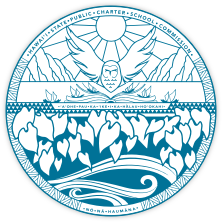Hawaiʻi continues to stand out as a national leader in early childhood education quality, according to the newly released 2024 State of Preschool Yearbook by the National Institute for Early Education Research (NIEER). The state met all 10 of NIEER’s quality benchmarks—an achievement shared by only a handful of states nationwide.
In the 2023–2024 school year, Hawaiʻi enrolled just 5% of its four-year-olds and 2% of its three-year-olds in state-funded preschool programs, the lowest participation rates among Pacific states. With a strong commitment to building public pre-kindergarten classrooms as part of a mixed delivery system, the Executive Office on Early Learning (EOEL), Lieutenant Governor Sylvia Luke, and Hawaiʻi’s Public Charter School Commission are working together to accelerate preschool expansion efforts.
“Every child in Hawaiʻi deserves the chance to thrive, and expanding access to high-quality preschool is one of our best investments,” said Lt. Gov. Sylvia Luke, who oversees the state’s Ready Keiki plan. “We’re proud to set a standard of excellence and remain committed to reaching more families statewide through a mixed delivery approach -- opening classrooms, expanding child care subsidies, and investing in early education workforce development and innovative preschool models.”
Highlights from the 2023–2024 year include:
- State-funded preschool enrollment increased to 1,026 children, up by 322 students from the previous year.
- State spending on preschool rose slightly to $7.59 million, though per-child spending dipped compared to the previous year after adjusting for inflation.
- Both charter school and EOEL run programs met all 10 NIEER quality standards, including small class sizes, highly qualified teachers, and comprehensive learning standards.
“The earliest years of children are the most formative,” said Ed Noh, Executive Director of the State Public Charter School Commission. “Expanding and offering free public preschool ensures that all our keiki have access to early learning opportunities vital for their learning, development, and future pathways to success.”
Public-private partnerships have played a key role in expanding preschool access, particularly in charter schools. These collaborations have paved the way for new classrooms and increased capacity across the state. Parkway Village Preschool, which opened this year, is set to expand to four classrooms next year—serving up to 80 students. The Commission recently approved the application of Waikīkī Community Preschool, which is planning to open six classrooms in the 2025–2026 school year, with the capacity to serve up to 108 students.
In addition, several existing public charter schools with state-funded preschool programs are expanding, further increasing the number of preschool students served. These efforts reflect the statewide commitment to ensuring that more of Hawaiʻi’s youngest learners have access to high-quality early education close to home.
Hawaiʻi’s leaders remain focused on expanding Pre-K access across the islands by investing in new classrooms, growing the early education workforce, and strengthening public-private partnerships. The goal: to give every child in Hawaiʻi a strong start and a pathway to lifelong success.

